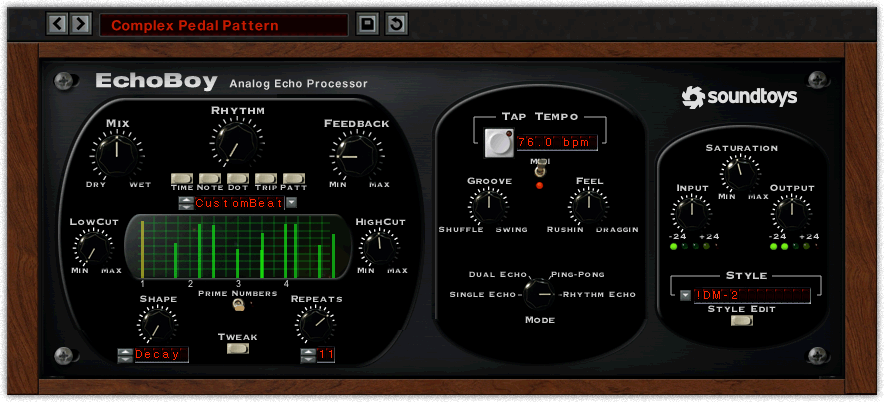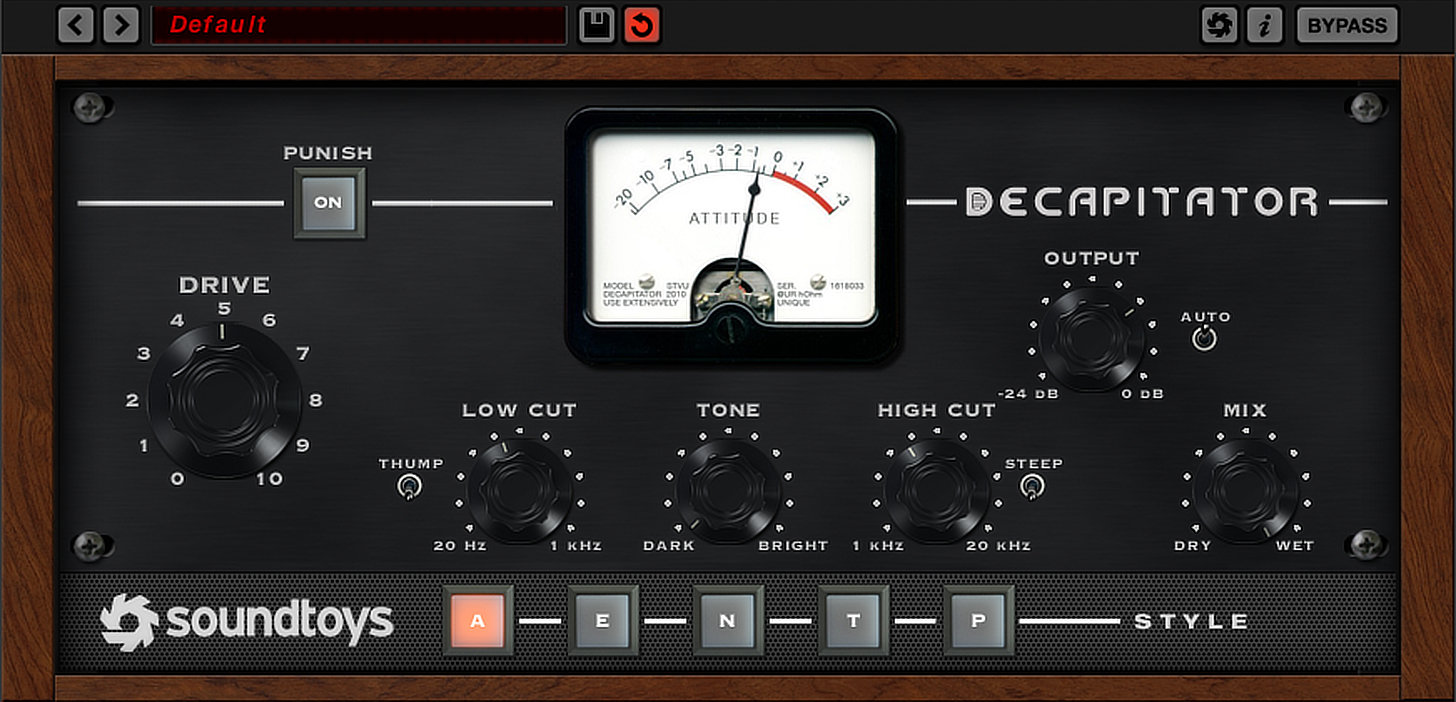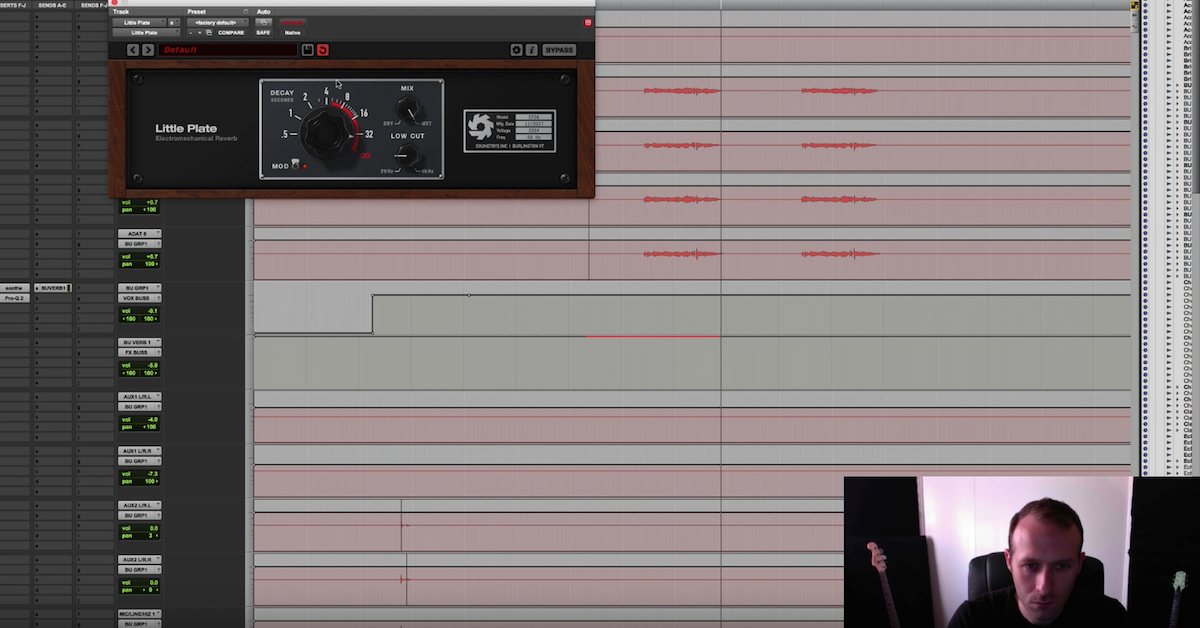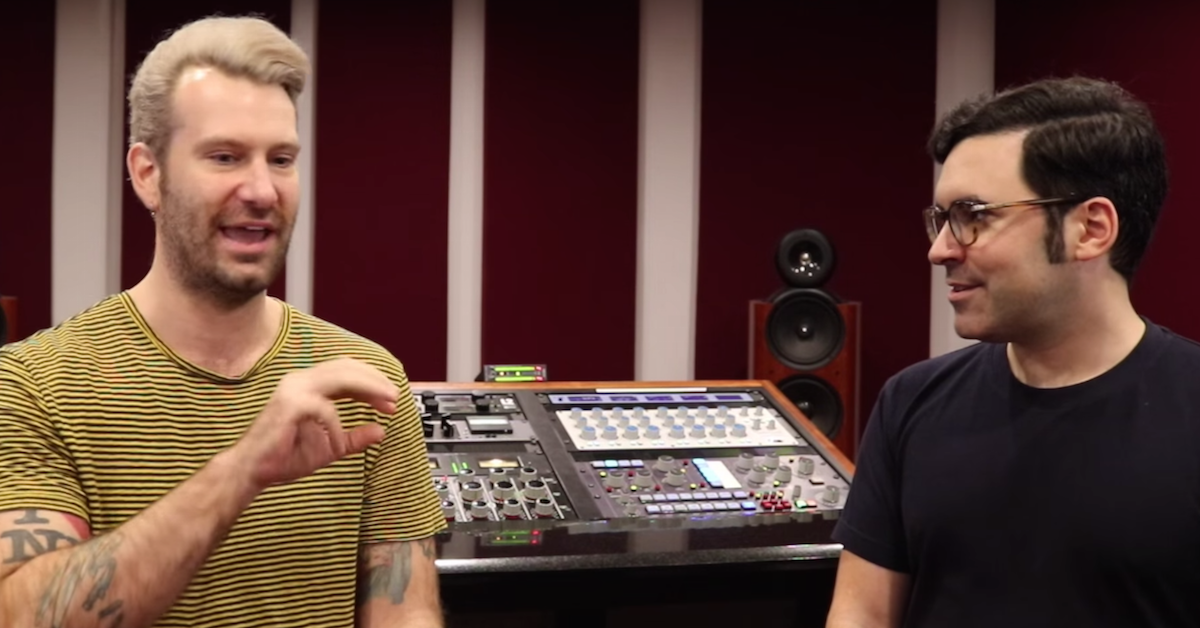6 Favorite Soundtoys Plugins (+ Mix Tips)
Article Content
Soundtoys is a celebrated software company that specializes in highly expressive audio effects for music production and sound design. Founded in 1996 and located in Burlington, Vermont, the company has been at the forefront of developing innovative and high-quality audio plugins for musicians, producers and engineers. With a wide range of products, Soundtoys has become a favorite in many professional studios and home recording setups. Music production aside, with their ability to dramatically transform signals, Soundtoys plugins are excellent for sound design in film, television and gaming.
Soundtoys products are known for their character-rich sound, ease of use and versatility. With a focus on providing creative and intuitive tools, Soundtoys have received several awards and accolades for their exceptional sound quality and innovative design. If you were to open up a mix session of mine, you’d find dozens of inserts of their plugins, including EchoBoy, Decapitator, Little Plate and more. Each and every one of their plugins can be configured, rearranged and further tweaked in the ingenious Effect Rack, which takes an already versatile set of plugins to the next level. In Effect Rack, you can insert several instances of Soundtoys effects, with the added benefit of global control over the input/output level. There’s also the recycle knob, which affects the time based effects, and there’s a mix blend knob to boot.
In this article, I’ll list my favorite plugins from this innovative company, and describe how I use them when mixing and producing music.
1. EchoBoy

It’s been around for well over a decade now, but it’s still the best. There have been dozens of fantastic plugin delays that debuted after this offering from Soundtoys, but for a variety of reasons, more often than not, Echoboy is the one I reach for.
EchoBoy offers a wide variety of delay effects, including vintage-inspired analog-style echoes, slapback and rhythmic delays. It also features an impressive set of tone-shaping controls, including a filter section, LFO modulation and panning controls. Users can create everything from simple echoes to rich, evolving soundscapes with ease. Whether you’re looking to add some depth to your mix, create dense atmospheres or even saturate a single track, EchoBoy is a powerful and versatile plugin that’s all over my sessions.
Mix Tip
Don’t exclusively use it as a delay. Take a deep dive into the style menu, and you’ll find plenty in addition to the classic delay types. There’s chorus, reverb, saturation and more — EchoBoy is so good at the delay thing, that he got bored.
2. Decapitator

Designed for adding subtle saturation, bombastic distortion and everything in between, The Soundtoys Decapitator plugin has a user-friendly interface that makes it easy to learn and immediately add character to individual tracks or subgroups. It features five analog distortion styles to choose from, each of which can be tailored to the user’s specific needs. In addition, the plugin also provides controls for tone shaping, including a low-pass filter, an adjustable high-pass filter, a mix blend and an output gain control. This makes it possible to achieve a wide range of distortion sounds, from subtle warmth to over-the-top distortion. Decapitator is a powerful and versatile plugin that has become an important part of my sound as a mixer.
Mix Tip
Forget subtlety — use two of ‘em in a row. While I often use just of pinch of the Decapitator (turning the drive up to about three for a touch of analog warmth and bite), I’m a fan of pushing the limits of this (and any) plugin. The punish knob multiplies the distortion amount several times over, introducing an extremely aggressive quality to any track you run through it. If that’s not enough, strap on a second instance directly after the first and, as Ray Arnold stated in Jurassic Park, “hold on to your butts.”
⇧ Bass with slight Decapitator
⇧ Bass with more Decapitator
⇧ Bass with two Decapitators
3. Little Plate

Little Plate is a reverb plugin that’s designed to capture the sound of classic plate units such as the EMT 140. Little Plate offers an accurate recreation of the classic plate reverb sound while also incorporating modern features such as an adjustable (up to infinite) reverb time, a low-pass filter, modulation and a control for adjusting the wet/dry mix. The user interface is tidy and easy to use.
Little Plate produces warm, spacious, and natural-sounding reverb tails that are perfect for virtually any source, and I personally love it on vocals, synthesizers, semi-distorted guitars and even drums.
Mix Tip
The infinite reverb time feature is a lot of fun. Take a selection from your song, whether it be a singular vocal line, guitar riff or snare drum hit, and then run it through Little Plate. Print 30 seconds to a minute worth of the reverb tail, and treat it like a brand new track. Maybe you could treat this printed audio like a pad, or chop it up on the grid to create a rhythmic element. To me, the fun is transforming a dry element into a long, lush soundscape, and Little Plate excels at this.
4. Devil-Loc Deluxe

A tribute to the Shure Level Loc hardware, which was initially used in PA systems before music engineers discovered how much fun they are when pushed into saturation, the Soundtoys Devil-Loc Deluxe contains even more sonic attitude than the original and sports some extra features that make it a standout plugin when you need to create dramatic compression effects.
Devil-Loc Deluxe features the following controls:
- Crush, which is the compression amount.
- Crunch, a violent saturation that drastically alters the tonality and impact of your tracks.
- A fast or slow release switch.
- Darkness, which filters out high frequencies.
- Mix, which allows for blending in the original signal, allowing for a more subtle application of the effect.
Check out these sound clips. The first with no processing, the second with Devil-Loc Deluxe at its default setting, and the last with more liberal application of the effect.
⇧ No processing
⇧ Devil-Loc Deluxe at its default settings
⇧ Devil-Loc Deluxe with aggressive settings
Mix Tip
Fans of Soundtoys were waiting a long time for their take on compression, and while I’d love to see a plugin with more precise control over attack and release times (and perhaps more tonal options), Devil-Loc is a beast if you embrace it for what it is. This isn’t a gentle compressor — it’s designed to transform audio tracks into smushy, distorted, aggressive versions of themselves. To make a drummer sound like they’re absolutely destroying the kit, a piano seem like it’s the size of a house, or to make a singer howl over a dense arrangement, Devil-Loc does just the trick.
5. MicroShift

Lauded as a go-to chorus and widening effect for vocals, MicroShift can certainly add richness and dimension to lead and backing vocals, but it shines on almost any sound source. From synthesizers, to guitars and even drums in the right arrangement, MicroShift enhances the spatial qualities of your tracks quickly and easily. Soundtoys founders had a hand in the creation of the Eventide H3000 pitch shifting unit, and emulated it on one of the three styles found within MicroShift.
Featuring a small and simple user interface, MicroShift gives control over the following:
- Mix, for blending in the original signal.
- Focus, for determining where in the frequency spectrum the chorus/widening will take place.
- Style, which includes three separate chorusing flavors.
- Detune, for tailoring the amount of pitch deviation of the chorus.
- Delay, for crafting how rhythmically tight or loose the chorusing effect feels.
Mix Tip
While MicroShift surely excels on individual tracks, try using it on reverbs or delays for adding a subtle shine to your time-based effects.
6. PanMan

Proper panning is essential for the perception of space and clarity in a mix, especially in dense arrangements. I used to feel as if auto-panning plugins were a bit gimmicky, but because Soundtoys emulated several classic auto-panning hardware units including the Spanner and PanScan, PanMan delivers a lot of analog character to go along with the flexibility of digital.
Controls on PanMan include:
- Offset, to emphasize the panning effect to one side.
- Width to determine how far the auto-panning effect goes into the stereo field.
- Smoothing to choose how gentle the effect moves across the stereo field.
- Rate to determine the speed of the effect.
- Direction, including left, right, as well as left and right.
- Input, which can be driven into a nice crunchy saturation.
- Output, to control overall level.
- Tweak is another section of PanMan that allows users to get really precise with the application of the effect. Tweak enables more control depending on which modulation type is selected.
- Modulation type and source. Here’s where PanMan starts to go really deep. If you click on the LFO button, you’ll be given several options to change the behavior of the plugin. Types include: LFO (default), rhythm step, rhythm shape, ping pong (triggered), random and step (triggered).
Lastly, there are both analog and digital modes, which alters how PanMan saturates an input signal.
Mix Tip
Sometimes I’ll use PanMan on synthesizer or electronic high hats to keep them hovering around the center, to keep them from clouding up a lead vocal. Other times I’ll employ PanMan in dramatic fashion, rapidly moving percussion or even vocals across the stereo field. It can also be fun to use it on delays or reverbs, subtly (or aggressively) moving time-based effects about the stereo image.






